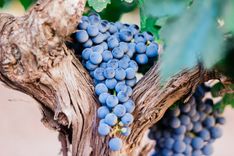
All About Wine Schools, Certifications, and Education
As with most careers, pursuing education in your field of choice is a great way to increase your knowledge, professional network, and access to resources. Regardless of whether you are interested in pursuing work in the vineyard, winery, sales, or hospitality there are educational programs and certificates that could be key to expanding and advancing your career opportunities.
Viticulture & Enology:
When pursuing formal education in viticulture and enology there are a wide array of options, so it is important to be mindful when considering the program that is the best fit for you. The main factor in deciding should be which wine region you would like to establish your career, followed by what kind of degree you are looking for.
It will set you up for success to know the region you would like to build your career before deciding which programs to pursue. The academic research focuses and professional networks that are accessible while attending a particular school is very driven by the wine regions in the closest proximity.
Every single state in the United States has at least one bonded winery in production, but the states with the most wine bonded production facilities such as California, Washington, Texas, Oregon, and New York have well-established wine regions that are supported by the best viticulture & enology university programs. Oftentimes an undergraduate or graduate degree will be a prerequisite to apply for Enologist, Assistant Winemaker, and Winemaker jobs in these areas.
California far-and-away has the most wineries of any state, and because of that, it has many university programs established to support its winegrowing regions. The most common undergraduate programs are Cal Poly San Luis Obispo, UC Davis, and Fresno State. All of these programs are producing high quality graduates, so it’s important to evaluate each of these universities holistically.
There is the general notion that UC Davis tends to be more research and theory oriented, whereas Cal Poly and Fresno are more practically focused and hands-on. The best way to decide which is the best fit for you is to visit all three to meet with the faculty and students. If you are specifically keen to establish your career in Napa Valley, UC Davis has the largest alumni footprint there. Whereas Cal Poly is more represented in the Central Coast winegrowing regions and Fresno in the Central Valley.
If you already have a 4-year degree, a masters program can be a great educational foundation to pivot your career. Both UC Davis and Fresno State have coursework prerequisites, GRE requirements, essays, and other application items to qualify. It is important to determine if you want to complete a traditional research thesis or be more industry focused & project-based. For instance, UC Davis offers two plan options, Plan I which requires a standard research thesis and Plan II–a Professional Science Masters that includes additional business coursework and requires a winery internship prior to program completion.
If you are looking for education programs that aren’t necessarily bachelors or masters degree programs, many community colleges in established wine regions offer winemaking certificate programs. If you are already working in a particular wine region and are trying to bolster your practical working experience, these programs are perfect for increasing your knowledge. In California, the wine regions below are supported by their local community colleges:
- Napa: Napa Valley Community College Winemaking Certificates & Associates Degrees
- Livermore: Los Positas College Associates Degree
- Sonoma: Santa Rosa Junior College Certificates & Associates Degrees
- Central Coast: Allan Hancock College Certificates & Associate Degrees
In Washington, the second largest wine producing state in the US, the most prominent enology program is offered at Washington State University. WSU offers undergraduate, graduate, and certificate programs in enology, viticulture, and wine business. In Washington’s winegrowing regions, the local community colleges including Walla Walla Community College and Yakima Valley College also offer certificates and associate's degrees in viticulture, enology, and fermentation science.
While in Texas, both Texas A&M and Texas Tech offer enology programs to their students to support their five winegrowing regions. The Palo Alto College based in the greater San Antonio area, is one of the community colleges in Texas to offer associate-level degrees and certificates in viticulture and enology.
Oregon is home to the fourth most US wine production facilities, and their industry is supported by Oregon State University on the undergraduate and graduate level with a wide array of 2-year associate's programs including Linfield University, Chemeketa Community College, and Umpqua Community College.
Finally, in New York the most prestigious enology program in the state is at Cornell University with its undergraduate, graduate and certificate programs. Similarly to UC Davis, Cornell also offers two kinds of masters programs, a research thesis-based track with a traditional MS and a capstone project-based alternative in their MPS program. Regional community college coursework can be pursued at the Finger Lakes Community College.
All of these programs can have significant tuition costs and there are many organizations that offer scholarships to ease the financial burden. A few of the organizations issuing these valuable scholarships include:
- CA Association of Winegrape Growers Foundation
- Roots Fund
- Association of African American Vintners
- Women of the Vine & Spirits
- McBride Sisters She Can Fund
Similarly, many large wine corporations offer their own collegiate scholarships.

The Wine & Spirit Education Trust (WSET) is a UK-based organization that offers certificates in wine, beer, spirits and sake. The WSET wine certifications are available in four levels, with Level 4 being awarded a WSET Diploma. The WSET Level 1 is an entry level course for someone interested in learning more about wine styles, wine tasting, and wine pairings. These certifications are extremely helpful for increasing general wine knowledge in preparation to enter the industry.
There are many online and in-person programs available to pursue the coursework and study materials for the WSET exams. One of the most prevalent programs in the US is the Napa Valley Wine Academy. The cost of their programs can vary from $275 for Level 1 up to $1775 for the Level 4 Diploma.
Since WSET is one of the most common entry-points for individuals into the wine industry, there are many organizations that offer scholarships to individuals to offset the costs of the program. Some of the most common ones include scholarships from Wine Unify, Pink Boots Society, Women of the Vine & Spirits, and the Association of African American Vintners.
Court of Master Sommeliers Americans (CMS) is an American-based organization that is deeply focused on education for professional sommeliers. Unlike WSET, the CMS certifications require hospitality knowledge including formal tableside service. The four levels of CMS certification are Introductory, Certified, Advanced, and Master.
The Introductory CMS course costs notably more than the introductory WSET, with a price of $875 whereas the final Master Sommelier examination has a price tag of $1899. The immense amount of wine tasting and practice can also cost quite a hefty price, and makes joining local study and tasting groups critical to success. Master Sommelier candidates must be employed in the wine service industry to be qualified to sit for the exam. There are scholarships through the Court of Master Sommeliers as well as through other non-profit organizations like the Somm Foundation to help offset some of the costs.
Professional Networking:
One of the best parts of pursuing education in the field that you're passionate about is the network of faculty, alumni, and industry sponsors connected to your college or university. Upon completion there are so many organizations devoted to connecting the passionate individuals in the wine industry for mentorship and early career development that are also important to mention.
Altogether, building relationships is the most fundamental component of establishing a career in the wine industry. Education can be a great lever to pull to build your foundation of knowledge and build your professional network. If you are interested in pursuing different degrees or certificates there is a wide array of choices available as well as resources to make pursuing these programs more attainable.
Like this? Here are some other aritlces you may like

How to Become a Winemaker
Do you want to learn to make wine? Winemakers have the techniques and skills required to make this delicious beverage!

How To Get a Job in the Wine Industry
The wine industry is one of the most lucrative industries today. With a variety of jobs available , it's no wonder that people are looking to get involved!

The Different Sommelier Levels and How to Get Them: What They Mean for Your Career
There are many different levels of sommeliers and each level can have an affect on a person’s career. Let’s talk about each of them.

